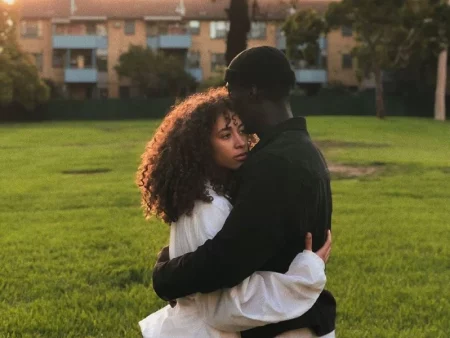Assessing Mutual Attraction: Signs and Signals
Deciphering the subtle cues of mutual attraction between friends requires keen observation and emotional intelligence. As relationships evolve, certain behavioral shifts may indicate a deepening connection. Consider these telltale signs:
- Increased physical proximity and “accidental” touches
- Prolonged eye contact and genuine smiles
- Seeking frequent one-on-one time together
- Heightened attentiveness to personal appearance
- Playful teasing and inside jokes
- Deeper emotional sharing and vulnerability
- Protective or jealous behavior around potential rivals
- Mirroring body language and speech patterns
- Increased digital conversation and social media engagement
- Finding excuses to be in close physical proximity
- Displaying more energy and enthusiasm in your presence
- Sharing personal photos or memories
- Expressing genuine curiosity about your life and interests
- Demonstrating consistent effort to maintain contact
While these indicators offer valuable insights, approach the situation with clarity and caution. Misinterpreting friendly gestures as romantic interest can lead to awkwardness and potentially jeopardize the existing relationship. Genuine attraction is often reciprocal and consistent over time.
To gain a more accurate assessment, observe how your friend behaves around others. Do they display similar behavior, or is there a noticeable difference in their interactions with you? Consider seeking input from trusted mutual friends who may have observed changes in dynamics.
Ultimately, the most reliable way to gauge mutual interest is through open and honest dialogue. Approaching the topic with sincerity and respect for established boundaries can help navigate this delicate transition while preserving the foundation of your friendship. Make sure to communicate your intentions clearly and be prepared for any outcome, as taking this risk requires both confidence and comfort with potential changes in your relationship.
The Importance of Open Communication
Open communication is essential when transitioning from platonic companionship to a deeper connection. Expressing intentions clearly and addressing concerns head-on paves the way for a smoother evolution. As you contemplate this leap, remember that honesty forms the bedrock of any lasting bond.
Initiating this pivotal conversation requires courage and tact. Choose a setting where you both feel at ease, free from distractions. Acknowledge your existing compatibility and shared experiences. Express your desire to explore a deeper connection while emphasizing your commitment to preserving your foundation.
Address potential concerns proactively. Discuss how this shift might impact your social circle and individual lives. Listen actively and validate their perspective. This effort demonstrates your genuine intention to approach this transition with care.
Authentic communication transforms silent hopes into shared dreams, allowing love to blossom from friendship’s seeds.
Setting clear expectations is crucial. Discuss your vision for this potential relationship, including aspects like exclusivity and preferred pace. Be open about hopes and fears, fostering deeper understanding. This transparency helps align expectations and prevents misunderstandings.
Balance confidence in expressing feelings with respect for the other’s autonomy. Give them space to process and respond without pressure. Maintain humor and spontaneity to ease tension and remind each other of shared joy.
Be prepared for various outcomes. Whether feelings are reciprocated or not, approach the situation with grace and support. Your ability to communicate openly now sets the tone for future interactions, regardless of the direction your relationship takes.
Prioritizing clear, honest communication creates an environment of trust and mutual respect. This foundation serves you well, whether embarking on a romantic journey or cherishing your friendship. The energy and curiosity you bring can ignite excitement for future possibilities.
Weighing the Pros and Cons
Transitioning from friendship to romance requires careful consideration. While deepening your connection can be exhilarating, it’s crucial to weigh both rewards and challenges:
| Pros | Cons |
|---|---|
| Deep mutual understanding | Potential loss of friendship |
| Established comfort level | Impact on social dynamics |
| Strong emotional foundation | Difficulty reverting to platonic status |
| Shared history and experiences | Feeling trapped in the relationship |
| Familiarity with quirks and goals | Risk of complacency |
Dating a friend offers compelling advantages. You begin with a deep understanding of each other’s personalities, aspirations, and idiosyncrasies. This knowledge fosters a sense of comfort and intimacy that typically takes months to develop in new relationships. Your shared experiences create a solid emotional foundation, potentially leading to a more fulfilling partnership.
However, the risks are significant. The primary concern is potentially losing both the romantic relationship and the friendship if things don’t work out. Unlike in movies, real-life scenarios rarely guarantee happy endings. The impact on your social circle can be profound, altering group dynamics and causing discomfort among mutual friends.
Reverting to a purely platonic relationship if the romantic aspect fails presents another challenge. Shared intimacy and changed expectations can make it difficult to reclaim the ease of your previous friendship. There’s also a risk of feeling obligated to maintain the relationship due to fear of losing the friendship entirely.
Before taking the leap, evaluate whether potential benefits outweigh these risks. Consider how you’ll navigate a potential breakup and ensure both parties are willing to risk the current dynamic for a deeper connection. While friends-to-lovers stories can lead to strong relationships, approach the transition with open communication and realistic expectations.
Ultimately, dating a friend requires careful introspection and honest dialogue. Taking the initiative to explore romantic feelings can lead to a beautiful relationship, but be prepared for all possible outcomes. Remember, preserving the essence of your friendship, regardless of the result, should remain a priority.
Strategies for a Smooth Transition
Navigating the delicate shift from platonic companionship to a deeper bond requires finesse and thoughtful planning. Consider these strategies to ensure a smooth transition:
- Cultivate deeper emotional intimacy gradually through meaningful conversations
- Engage in activities that foster shared experiences and create new memories
- Respect each other’s need for personal space and autonomy within the evolving dynamic
- Introduce physical affection incrementally, allowing comfort levels to develop naturally
- Address potential concerns within your social circle proactively to minimize awkwardness
- Establish clear boundaries to navigate this new terrain while preserving individual identities
- Celebrate milestones in your evolving connection to reinforce positive growth
- Maintain individual interests and friendships outside the relationship
- Seek support from trusted confidants when needed, while respecting privacy
- Practice active listening and empathy to deepen understanding
- Explore shared goals and values to strengthen your foundation
- Be patient with each other as you adapt to new roles and expectations
- Solve conflicts constructively, looking for solutions rather than opportunities to blame
- Regularly check in on the pace and comfort level of the transition
Remember, patience is paramount as you navigate this transformation. Embrace the journey of discovery, allowing your bond to flourish organically. Prioritize understanding and empathy, recognizing that both parties may process this shift differently.
Consider creating new traditions or rituals that honor your unique path. This might include designating a special date night or embarking on adventures that push you out of your comfort zones together. These shared experiences can enhance your bond and give birth to lasting memories.
As you explore this new dynamic, remain attuned to each other’s comfort levels. Be prepared to adjust your pace if needed, ensuring both parties feel secure and valued. The foundation of your existing bond is a powerful asset – leverage it to build trust and deepen your understanding of one another.
Ultimately, approaching this transition with intentionality and care can pave the way for a fulfilling and enduring partnership. By nurturing your connection thoughtfully, you create the potential for a love story grounded in genuine companionship and mutual respect.
Building a Strong Foundation
Building a robust foundation for a relationship that blossoms from friendship requires intentional effort and shared commitment. The unique advantage lies in the pre-existing trust and understanding, which serve as cornerstones for deeper intimacy. Prioritize open dialogue about expectations, values, and long-term aspirations to ensure alignment as you navigate this new terrain.
Cultivate mutual respect by acknowledging each other’s individuality and supporting personal growth. This balance between togetherness and autonomy fosters a healthy dynamic, allowing both partners to thrive independently while nurturing their bond. Embrace vulnerability, sharing fears and dreams alike, to deepen your emotional connection.
Shared values form the bedrock of lasting partnerships. Identify and celebrate the principles that resonate with both of you, whether it’s a passion for adventure, commitment to personal development, or dedication to community service. These common threads strengthen your bond and provide direction for your shared journey.
When friendship evolves into love, it’s like planting a seed in fertile soil. With care, patience, and nurturing, it can grow into a majestic tree, offering shade, strength, and beauty for years to come. This metaphor encapsulates the potential for growth and stability inherent in relationships rooted in friendship.
Maintain the playful camaraderie that defined your friendship while exploring new dimensions of intimacy. Plan activities that challenge you both, creating fresh memories and inside jokes. This blend of familiarity and novelty keeps the relationship dynamic and engaging.
Establish rituals that honor your unique path, such as weekly check-ins or annual adventures. These shared experiences create a tapestry of moments that reinforce your connection. Remember to capture these milestones through visual mementos, building a narrative of your evolving bond.
By consciously cultivating trust, respect, and shared values, you lay the groundwork for a resilient and fulfilling partnership. This intentional approach transforms the solid foundation of friendship into a launching pad for profound love and enduring companionship. Regular reflection on your journey together can help reinforce your commitment and appreciation for the unique bond you share.
When Things Don’t Work Out: Preserving the Friendship
When romantic endeavors between friends don’t flourish, preserving the friendship becomes paramount. Navigating this delicate situation requires emotional intelligence and mutual respect. Here are essential strategies to maintain your bond:
- Allow ample space for processing emotions
- Establish clear boundaries to avoid mixed signals
- Communicate openly about your desire to salvage the friendship
- Avoid dwelling on “what-ifs” or past romantic moments
- Refrain from discussing new romantic interests initially
- Seek support from other friends to process your feelings
- Gradually reintroduce shared activities you enjoyed as friends
- Be patient with the healing process for both parties
- Employ active listening techniques to understand each other’s points of view
- Focus on rebuilding trust through consistent actions
- Engage in new experiences to create fresh, platonic memories
- Consider seeking professional guidance if needed
Prioritize honest communication to address any lingering concerns or unresolved feelings. Acknowledge the valid attempt at deepening your connection, but focus on the value of your enduring friendship. This approach fosters mutual understanding and facilitates closure.
Remember, the foundation of your friendship remains a precious asset. By approaching the situation with maturity and compassion, you create space for your bond to evolve. Many pairs successfully navigate this transition, emerging with a strengthened platonic connection.
Ultimately, preserving a meaningful friendship after a romantic attempt requires commitment from both individuals. Embrace the shared experiences that initially brought you together, allowing these memories to guide you towards a renewed, platonic connection. With time and effort, it’s possible to rebuild a strong, fulfilling friendship that transcends the brief romantic interlude.
Success Stories: Friends to Lovers
Love stories that blossom from friendship often possess a unique depth and resilience. Consider Sarah and Michael, college study buddies whose shared passion for literature evolved into profound late-night discussions. Their intellectual bond grew naturally into romance, built on years of mutual understanding and respect.
Jenna and Alex’s tale began as childhood neighbors, their innocent playdates transforming into teenage adventures. Their families watched with amusement as this companionship matured into a deep connection. Open communication and embracing change while cherishing their shared history proved key to their successful transition.
Marcus and Elena’s story unfolded in the workplace, where professional collaboration sparked personal attraction. By maintaining clear boundaries at work while nurturing their growing intimacy outside office hours, they allowed their relationship to flourish without compromising their careers.
These success stories highlight common factors: patience, mutual respect, and the courage to explore deeper feelings. By valuing their pre-existing bond, these couples built lasting partnerships rooted in genuine understanding and shared experiences. Their journeys demonstrate that with careful navigation, the transition from friendship to love can lead to uniquely fulfilling relationships.
Making the Decision: Is It Worth the Risk?
Deciding to pursue a romantic relationship with a friend requires careful consideration. This pivotal choice can lead to a deep, fulfilling partnership or potentially alter cherished dynamics. To navigate this complex decision, evaluate key factors objectively:
| Consideration | Positive Outcome | Potential Challenge |
|---|---|---|
| Emotional Compatibility | Deep understanding and support | Heightened vulnerability |
| Shared Values | Strong foundation for growth | Differing life goals |
| Mutual Attraction | Natural physical chemistry | Unbalanced feelings |
| Social Circle Impact | Supportive network | Strained group dynamics |
| Long-term Potential | Lasting partnership | Loss of close bond |
| Communication Skills | Open dialogue and understanding | Difficulty expressing new feelings |
| Shared Experiences | Rich history to build upon | Struggle to create new dynamics |
Reflect on your shared experiences and how they might translate into a romantic context. Consider the depth of your emotional bond and whether it provides a solid foundation for intimacy. Evaluate your ability to communicate openly about feelings and expectations.
Assess the potential impact on your social circle. How might mutual friends react? Are you prepared to navigate possible changes in group dynamics? Consider seeking advice from a trusted confidant who can offer an objective perspective.
Examine your long-term goals and values. Are they aligned with your friend’s aspirations? Discuss future plans openly to ensure compatibility beyond the initial excitement of a new relationship.
Ultimately, weigh the potential for a fulfilling partnership against the risk of altering your current friendship. Remember, there’s no guaranteed outcome. The decision to transition should be made with careful thought and open dialogue. If both parties are willing to explore this new dimension, approach it with patience, respect, and a commitment to preserving the core of your connection, regardless of the outcome.
Consider the potential for personal growth within a romantic context. How might this new dynamic challenge you both to evolve? Be prepared for changes in your individual identities as you navigate this transition together.
Frequently Asked Questions About Transitioning from Friends to Dating
What if my friend doesn't reciprocate my romantic feelings?
If your friend doesn't reciprocate romantic feelings, prioritize open communication and emotional maturity. Express yourself honestly, but respect their decision. Allow space for processing emotions while reaffirming your friendship's value. Focus on maintaining your connection, adjusting expectations gracefully. With patience, your bond can evolve and strengthen differently than initially hoped.
Can a friendship survive if the romantic relationship doesn't work out?
Yes, friendships can survive after romantic relationships end, but it requires effort and maturity. Clear boundaries, healing time, and open communication are crucial. Rebuilding trust through shared interests helps. Success depends on mutual desire to preserve the bond and process emotions healthily. Patience and understanding are key.
How do I tell if my friend is interested in me romantically?
Watch for subtle body language shifts like increased proximity and prolonged eye contact. Notice heightened engagement in conversations and interest in your life. Observe if they seek more one-on-one time or act protective around others. While these signs can indicate interest, open communication remains the most reliable way to gauge romantic feelings.
Should I consult mutual friends before pursuing a romantic relationship with a friend?
Consulting mutual friends before pursuing a romantic relationship with a friend is a delicate decision. While they may offer valuable insights, it's crucial to respect privacy and maintain discretion. Instead, focus on open communication directly with your friend. Trust your judgment and prioritize honest dialogue to navigate this sensitive transition effectively. Consider potential impacts on group dynamics before proceeding.














